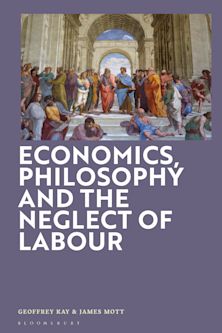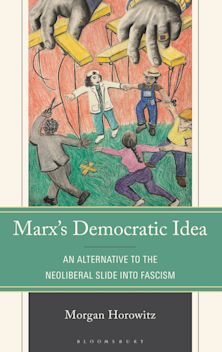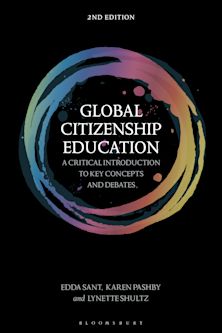- Home
- ACADEMIC
- Philosophy
- Social and Political Philosophy
- How the Neoliberalization of Academia Leads to Thoughtlessness
How the Neoliberalization of Academia Leads to Thoughtlessness
Arendt and the Modern University
How the Neoliberalization of Academia Leads to Thoughtlessness
Arendt and the Modern University
You must sign in to add this item to your wishlist. Please sign in or create an account
Description
Universities across the US have committed to a process of neoliberalization that is radically altering higher education: academia is increasingly being run like a business. As a result, the university is becoming less and less a place of wonder, self-cultivation and thinking and instead is becoming more and more a place to specialize, strategize, produce and profit. Students race through coursework to bolster job prospects while facing massive debt. Faculty scramble for the biggest grants and angle for the most prestigious journals. Sink or swim, publish or perish, triumph and win: there is no longer time to think and to wonder.
This undermines the opportunity for students to develop into good citizens that can truly think critically and judge carefully. Thinking and judgment are, according to the philosopher Hannah Arendt, the only things that can save us if the powerful machines of science or capitalism begin to work in ways they should not. Arendt saw Nazi Germany use the newest science and the best economic management to systematically kill six million Jews. She saw the disturbing inability of the populace and the intellectuals to capably resist the Nazi machine once it got rolling. Applying Arendt’s insights to modern academia, Pack argues that unless checked, neoliberalization threatens to turn the university into a place that discourages thinking and the development of judgment in favor of hyper-specialization and strategic action.
Table of Contents
II. The Rise of the Modern Research University
III. Hannah Arendt on Thinking, Cognition, and Judgment
IV. The Hegemony of Science
V. Neoliberalism
VI. Conclusions: The Strategic Disposition
Product details
| Published | 15 Nov 2018 |
|---|---|
| Format | Ebook (PDF) |
| Edition | 1st |
| Extent | 180 |
| ISBN | 9798216298571 |
| Imprint | Lexington Books |
| Publisher | Bloomsbury Publishing |
About the contributors
Reviews
-
Pack weaves together solidly precise and scholarly argument and exposition in a style that is lively, intelligent, and at times almost jaunty. The book moves in an orderly way from background material on sociology and economic theory to careful formulations of its central theses, namely, that universities are failing to achieve their traditional or ideal goals because of the unexamined assumptions that characterize large areas of economic, cultural and professional life in America today.
Charles Guignon, Professor Emeritus of Philosophy, University of South Florida



































